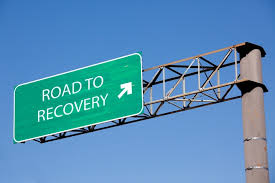Study: A.A. Meetings May be Lifesavers
Friday, March 25th, 2022
Addiction and Recovery
By Bob Gaydos
“Don’t drink … and go to meetings.”
“Meeting-makers make it.”
Those two bits of advice — “suggestions” as they are officially considered — have been welcoming newcomers to Alcoholics Anonymous ever since the group was born 86 years ago.
The message is simple: Alcoholics, especially those new to recovery, are more likely to get and stay sober if they keep regular contact with other alcoholics in recovery. The “all in the same boat” philosophy. “We” get sober, especially if some of us know how to do it and can guide others. Fellowship. Coffee. Hugs and handshakes. Easy does it.
Then came COVID. No more hugs. No more handshakes. No more coffee. No face-to-face support and fellowship. And for some, no recovery. Or worse.
According to a recent report published in the Journal of the American Medical Association, alcohol-related deaths increased by 25 percent in the United States in the first year of Covid. Researchers from the National Institute on Alcohol Abuse and Alcoholism (NIAAA) looked at mortality data to compare the number of alcohol-related deaths among persons aged 16 and older in 2019 and 2020. Deaths were considered to be alcohol-related if alcohol was listed as an underlying or contributing cause.
The report found that the number of alcohol-related deaths, including from liver disease and accidents, jumped to 99,017 in 2020, up from 78,927 the previous year. That 25 percent increase is compared to an average increase of 3.6 percent annually for the previous 20 years. Perhaps not surprisingly, in response to the pandemic, many Americans drank more. They binged more. And more of them died because of it.
The researchers cited the stress of living with all the changes and restrictions of Covid, including isolation, as a major factor in the increase in drinking and deaths. Of course, isolation and feeling stressed are major reasons many alcoholics drink. Recovery is largely about dealing with stress and other people without drinking.
In addition to the Covid-related stress in general, it became more difficult to seek help at rehabs. Hospitals with recovery programs were swamped with Covid patients. The researchers say many people got discouraged and just put off looking for help.
And for those meeting-makers, there were no more meetings. At least not in person. The researchers also said they assumed many people in recovery relapsed because they couldn’t access any in-person support, including from 12-step groups like AA.
To be sure, Zoom meetings proliferated online and many AA members found themselves staring at their smart phones or iPads, communicating with alcoholics across the nation and, indeed, across the world. The messages were the same, just not in person. Make your own coffee. Hug your cat. It was new and, for many, a welcome lifeline.
But for many others, this wasn’t enough. Having been resourceful about managing to get a drink, a lot of alcoholics in recovery did manage to figure out how to have meetings in person, safely.
In New York’s Mid-Hudson region, some began meeting in their cars in parking lots. Once the weather warmed up, groups with venues that offered private space began meeting outside. Bring your own chairs and coffee. Meetings sprang up in parks throughout Orange, Ulster and Sullivan counties. If there was a park pavilion with a large crowd of people sitting quietly and sipping coffee, there was a good chance it was an AA meeting. The restrictions or requirements changed with Covid. Masks, sanitizer, and social distancing were common place. It wasn’t the same, most agreed, but it was far better than not meeting at all.
COVID is not yet gone. It seems to keep reinventing itself. Local AA groups continue to adapt as well, most now meeting indoors, with or without masking and distancing rules. For many, the coffee pots are back. Zoom meetings continue.
But the importance of in-person contact is not lost on many members.
“The meetings are where I get my medicine,” says F.G., a longtime member from Orange County. “I need to see the faces,” he says.
More personally, G.E., an Ulster County resident, says he was within months of 25 years of sobriety when he stopped going to meetings and eventually relapsed. Then Covid arrived. Back a couple of months now, he says, “I must treasure my sobriety. I have to respect it. I thought I could do it without the personal contact. I couldn’t. Now, I really enjoy the fellowship.”
At least one study suggests there’s a compelling reason to continue to do so.
rjgaydos@gmail.com


